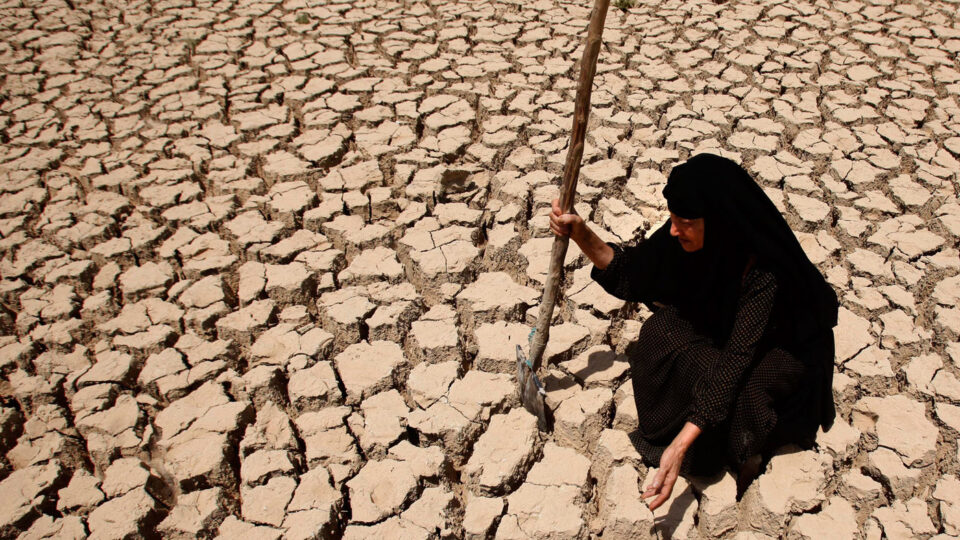Sema
The spokesperson stressed Iraq’s need for a fair water share, noting over 70% comes from abroad, and said PM Sudani is personally leading the talks, showing the issue’s top priority.
Iraq is facing its most severe water shortage in the last 80 years due to a combination of climate change, declining rainfall, and increased upstream water consumption by neighboring countries, an Iraqi official warned on Wednesday.
Khalid Shamal, spokesperson for Iraq’s Ministry of Water Resources, described the situation as “shameful and alarming,” attributing the dramatic drop in water flow to three consecutive years of drought and rising temperatures. “This is not limited to Iraq,” Shamal noted, “but extends to upstream countries that control Iraq’s water sources.” Speaking to the media, Shamal said Iraq is now recording the lowest water inflows since record-keeping began eight decades ago. “That’s why we need a concerted effort from all stakeholders to overcome this crisis,” he stressed.
Strategic Plan to Address the Crisis
The Ministry of Water Resources has adopted a three-pronged strategy to confront the escalating water crisis. According to Shamal, the first step involves enhancing cooperation with neighboring upstream countries—Turkey, Iran, and Syria—many of which are building dams and diverting water supplies that feed into Iraq’s Tigris and Euphrates Rivers.
The spokesperson emphasized the need for a “just and fair share of water” for Iraq, pointing out that over 70% of the country’s water comes from external sources. He added that Iraq’s Prime Minister Mohammed Shia’ al-Sudani is personally overseeing water negotiations, reflecting the government’s prioritization of the issue.
“This has already led to agreements and ongoing talks with Turkey,” Shamal revealed, noting that both the Water Minister and Prime Minister have made visits to Ankara to discuss shared water resources.
In a related development, Prime Minister Sudani arrived in Ankara on Thursday for an official visit, during which he is scheduled to meet with top Turkish officials, including President Recep Tayyip Erdogan. At the top of the agenda is Iraq’s water share from the Tigris and Euphrates rivers.
Agricultural Reform at the Heart of the Solution
Shamal also underscored the government’s internal efforts to improve water management through agricultural reform. These efforts include upgrading irrigation systems, introducing modern farming techniques, and reducing water-intensive crops. The government is drafting a national agricultural identity system to monitor and manage water use per farmer and per region more effectively.“More than 80% of Iraq’s water consumption is in the agricultural sector,” Shamal stated, “so improving efficiency here will have the greatest impact on overall water use.”
Cracking Down on Illegal Use and Water Theft As part of a third strategic focus, the ministry is intensifying inspections and enforcement against illegal water usage, pollution, and encroachment on protected wetlands and rivers. “These violations have led to ecological disasters and disrupted fair distribution,” Shamal warned, “whether it’s a province, a water unit, a farm, or an individual taking more than their share.”
The government aims to implement better monitoring systems and stricter penalties for those who illegally divert or misuse water.
Iraq, once a water-rich cradle of civilization, now ranks among the world’s most water-stressed nations. Decades of mismanagement, war, and poor infrastructure have compounded the impact of external factors like dam construction in Turkey and Iran. The Tigris and Euphrates Rivers, lifelines for millions of Iraqis, have been reduced to narrow streams in many places, devastating farmland and threatening food security.
The water crisis is not only a humanitarian and environmental issue but also a source of potential regional tension, as competing demands over shared water resources grow.
Iraq’s leadership is now under increasing pressure to secure water rights through diplomacy, reform agricultural policy, and crack down on water theft—all while adapting to the looming specter of climate change.

